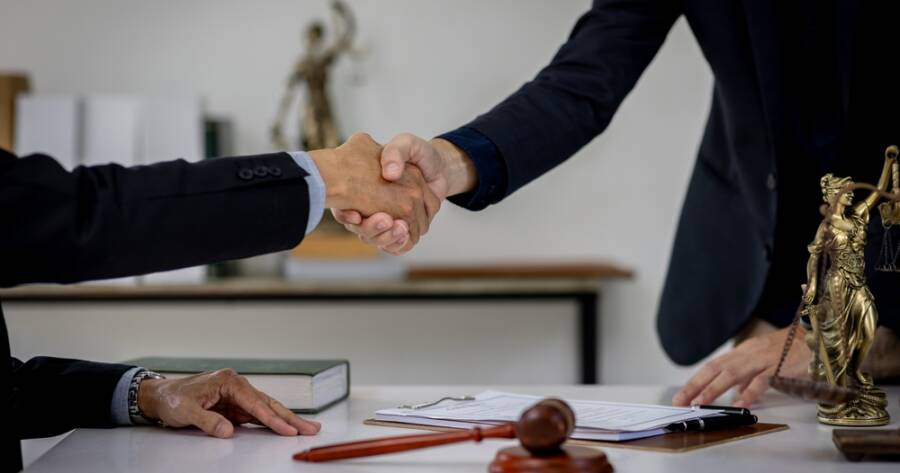Navigating the complexities of personal injury law can be daunting, especially when dealing with the aftermath of an accident. Selecting the right personal injury lawyer is crucial to ensuring your rights are protected and you receive the compensation you deserve. An informed choice can make a significant difference in your legal journey. Explore key factors to consider when choosing a personal injury lawyer, and find an advocate who aligns with your needs and goals.
Assessing Experience and Expertise
When selecting a personal injury lawyer, evaluating their experience and expertise in handling cases similar to yours is paramount. Lawyers who specialize in personal injury law often possess detailed knowledge of regulations, insurance practices, and court procedures. This specialized understanding can effectively guide you through the complexities of your case and optimize your chances of a favorable outcome.
Researching potential lawyers’ track records can provide a clear indication of their ability to handle cases like yours. While considering years of practice, delve deeper into their specific experience with your type of claim, whether it’s car accidents, workplace injuries, or medical malpractice. An attorney well-versed in these areas demonstrates an ability to tackle the nuances your case may present, equipping you with a skilled advocate adept at navigating hurdles.
Considering Reputation and Reviews
A lawyer’s reputation and reviews from previous clients can offer valuable insights into their professionalism and effectiveness. Reliable testimonials and ratings often highlight not just successes but also their approach to client communication and support. This feedback can aid in assessing whether a potential lawyer aligns with your expectations regarding service and trustworthiness.
Engage in thorough research through online platforms, bar association referrals, or personal recommendations. Investigating disciplinary records or unresolved complaints with the state bar association provides additional context about the lawyer’s standing. A strong professional reputation combined with positive client experiences often reflects reliability, ensuring you have a partner you can depend on during challenging circumstances.
Evaluating Communication and Accessibility
Effective communication between you and your lawyer is vital for a successful legal partnership. Attorneys who prioritize clear, transparent conversations facilitate better understanding of your case’s progress and strategy. During initial consultations, gauge their responsiveness and willingness to address your queries in a timely and jargon-free manner.
Accessibility is equally essential—ensure that potential lawyers have enough time to dedicate to your case. Larger firms might offer teams with shared responsibilities, whereas solo practitioners typically provide more personal attention. Understanding each lawyer’s communication style and availability helps align your expectations and ensures both parties remain engaged throughout the process, minimizing stress and confusion.
Understanding Fee Structures
Legal fees can often be a concern in pursuing personal injury claims, making it essential to understand how potential lawyers structure payments. Many personal injury lawyers operate on a contingency fee basis, meaning they only receive payment if you secure compensation. This arrangement often appeals to clients concerned about upfront costs, allowing legal access without financial barriers.
Clarifying all aspects of the fee agreement, including percentage rates and any additional costs or expenses, is crucial to avoid surprises later. Before signing any contract, request a written agreement outlining terms of payment and other financial responsibilities. This transparency ensures clear understanding and enables informed financial decisions, freeing you to focus on recovery and case progression.
Examining Case Strategy and Approach
Every personal injury case presents unique challenges requiring tailored strategies. During consultations, inquire about potential lawyers’ approach to your case and their proposed tactics for achieving desired outcomes. Discussing their initial evaluations and considerations, such as evidence gathering and negotiation tactics, provides insight into their preparedness and strategic mindset.
Assess their willingness to pursue your case aggressively if necessary, potentially including litigation if settlements fall short. A proactive lawyer ready to explore all avenues, including trial, offers assurance of commitment to achieving the best possible result for you. Understanding their strategic vision ensures alignment with your objectives and enhances confidence in their advocacy.
Choosing Your Legal Champion
Choosing the right personal injury lawyer is a critical step toward ensuring your legal matters are handled effectively and efficiently. Evaluating factors such as experience, communication skills, fee arrangements, and strategy is integral to making an informed decision. By securing a lawyer who aligns with your values and understands the intricacies of your case, you position yourself for the best possible outcome.
Confidently navigating this selection process empowers you to find a dedicated advocate who will passionately represent your interests, allowing you to focus on recovery and reclaiming normalcy. In a challenging period, this partnership can provide the support and guidance crucial to achieving justice and fair compensation.
